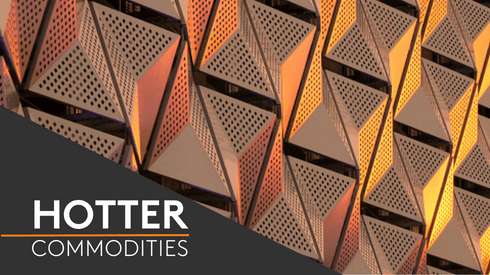China’s nickel sulfate prices hold
Nickel sulfate prices in China remained steady in the week to Monday November 28 despite production cuts by downstream battery makers.
An offer was made at 41,200 yuan ($5,740) per tonne, with no deal concluded, but most participants considered the market still unchanged in the absence of liquidity.
As a result, Fastmarkets’ weekly price assessment for nickel sulfate, min 21%, max 22.5%; cobalt 10ppm max, exw China was 41,000-41,500 yuan per tonne on November 28, flat week on week.
Battery makers have been cutting production for various reasons.
“While demand is still there and is unlikely to change drastically, the primary reason for battery production cuts is…high lithium prices,” an industry source said, adding that the end of government subsidies on renewable energy cars due to take effect at the end of this year has also played a role in reduced buying interest and production cuts.
Regardless of shrinking downstream demand, the limited refining capacity of nickel sulfate has lent some support to the market.
“I heard a major battery maker cut production by 25%, but still, this won’t have an effect upstream, given the limited refining capacity of nickel sulfate,” a Shanghai-based trader said.
MHP edges lower on softening demand
Weakened sentiment in the domestic Chinese nickel sulfate market has pressured payables lower for MHP following several weeks of reported increases in the market.
Fastmarkets assessed the nickel-mixed-hydroxide payable indicator, % London Metal Exchange, cif China, Japan and Korea at 79-82% on Friday, a 1% drop from the previous pricing range.
Lower quality material was available on the spot market for as low as 76%, some market participants said, but a lack of confirmed liquidity and buying interest at such levels prevented any further decreases.
Fastmarkets will seek to confirm whether such payable levels are reflective of the open and competitive market in future pricing sessions.
Although there have been production disruptions at operations in New Caledonia and Papua New Guinea in recent months, the current lack of conversion capacity for MHP globally has been offsetting this, meaning that payables remain firmly connected to the Chinese nickel sulfate market, participants told Fastmarkets.
Market participants were largely bullish about the future of MHP, however, given its growing importance in the market.
“We are seeing clear signals that the market is moving more and more toward greater MHP adoption,” one trader told Fastmarkets.
The payable element’s move lower means that the expressed price has also edged down – which, as per Fastmarkets’ methodology, is linked to the previous month’s official LME nickel cash price.
Fastmarkets assessed the nickel mixed hydroxide precipitate expressed price, cif China, Japan and Korea at $17,320-17,978 per tonne on November 25.
International sulfate premiums steady on illiquidity
The nickel sulfate price on a CIF China, Japan, and South Korea (CJK) basis dropped significantly following a correction in the underlying LME official cash prices.
Fastmarkets calculated the weekly average of the LME nickel cash official prices at just below 7.5% lower compared with the previous week, with the LME average for November 18-24 standing at $25,395.50 per tonne, compared with $27,445 per tonne for the five trading sessions to November 17.
Fastmarkets calculated the price of nickel sulfate, cif China, Japan and Korea at $5,998 per tonne, compared with $6,455 per tonne the previous week.
The market fundamentals for nickel sulfate on a CIF CJK basis have remained unchanged, though with liquidity reportedly thin for battery-grade material and most volumes tied to long-term contracts.
Fastmarkets assessed the nickel sulfate premium, cif China, Japan and Korea at $1,500 per tonne on November 25, unchanged from the previous week. The international nickel sulfate premium remains at its lowest levels since Fastmarkets began assessing the market in April 2021.
Market participants are said to be weighing the impact of the various routes to sulfate on the premium element. Class-one nickel is reportedly commanding very different levels compared with class-two nickel as a result of input costs.
This has resulted in a divergence in price assessments, with indications ranging from $1,000 to $2,000 per tonne.
To keep track of all the latest developments in the nickel market, head to our dedicated nickel market page.






